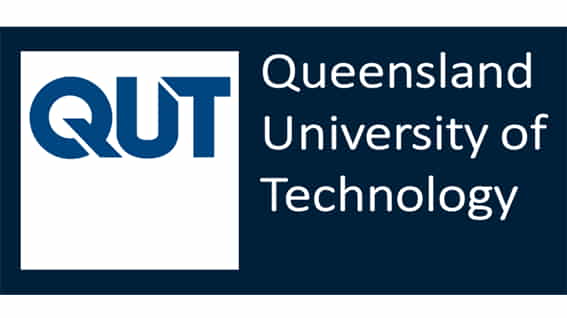Last Date: 07-Jan-2024.
Who are we looking for?
We are seeking a Postdoctoral Research Fellow – Synthetic Biology to join School of Biomedical Sciences, Faculty of Health, Academic Division.
The successful candidate will work as part of a strategic project in CMR which involve characterising viruses (primarily phage) from human gut microbiomes. The primary role of the position is to help develop a synthetic biology toolbox for the genetic engineering of non-model microorganisms, including cloning, modification and expression of large DNA constructs. CMR has recently made advances in studying phage interactions with their hosts. The project will use cutting-edge synthetic biology toolbox to engineer the viruses.
Real world impact
QUT is a major Australian university with a global outlook and a ‘real world’ focus. We are an ambitious and collaborative institution that seeks to equip our students and graduates with the skills they will need in an increasingly disrupted and challenged world.
About the area
The Centre for Microbiome Research was established in 2020 by Professor Gene Tyson, an expert in the field of microbial ecology. Professor Tyson and his team are actively involved in the development of innovative culture-independent molecular approaches and bioinformatic tools, and their application to answer important questions about microbial communities across a range of ecosystems. The team is made up of researchers with diverse expertise within microbial ecology and genomics, providing an intellectually robust and collaborative environment. The Centre is located within the Translational Research Institute (TRI), a unique multidisciplinary facility located at the Princess Alexandra hospital with a strong focus on translational research. This positions the team amongst top researchers and clinicians from diverse disciplines such as genomics, bioinformatics, immunology, oncology and gastroenterology, and provides the team with access to state-of-the-art core facilities. The Centre also has a dedicated PC2-certified laboratory fully equipped for molecular biology that includes an in-house white light laser confocal microscope (Leica), a PromethION (Oxford Nanopore Technologies) and access to a NovaSeq 6000 (Illumina). The Centre has a BD FACSAria Fusion fluorescence activated cell sorter with small particle detection and liquid handling robots for single cell genomic and culturing work, and maintains anaerobic culture and quarantine facilities. CMR houses its own high-performance computing resources consisting of >1,000 cores and 9 nodes. The operation of these facilities is supported by professional staff for microscopy, flow cytometry, sequencing and bioinformatics..
What you need to succeed
- PhD in the area of Synthetic biology, Protein Engineering, Metabolic Engineering, Molecular biology, or a related discipline.
- Demonstrated experience in homologous-based techniques for genetic engineering.
- Expertise in vivo (e.g. transformation-associated recombination cloning) and in vitro DNA assembly methods, including use of CRISPR-Cas systems.
- Expertise in molecular cloning and recombinant protein expression and purification.
- Demonstrated understanding of and adherence to local regulations governing biosafety and work with genetically modified organisms.
- Demonstrated ability to work collaboratively within a multi-disciplinary team, along with the proven ability to autonomously organise and prioritise tasks and workflows to meet project deadlines.
- High-level communication skills, including clear and effective verbal communication, demonstrated written communication skills and strong interpersonal skills.
Desirable
8. Experience with genetic engineering of non-model organisms.
Life at QUTWe’re committed to building a culture that fosters connection between people and purpose. Beyond personal and professional fulfillment, a career at QUT offers:
- A healthy work-life balance with a blend of on-campus and off-campus work arrangements for applicable positions.
- Competitive remuneration with up to 17% superannuation.
- Generous maternity leave including primary carer parental leave of up to 26 weeks (including 17% super).
- Stay healthy with Fitness Passport and enjoy discounted rates on private health insurance.
- Leave loading of 17.5%.
- Purchased Leave Scheme – up to 8 extra weeks.
- Salary Packaging Scheme for additional superannuation contributions, vehicle leasing, and on-campus services such as childcare, parking, and gyms.
- Numerous opportunities for professional development including leadership programs and workshops, and our study assistance scheme.
- Commitment to our Indigenous Australian staff through initiatives such as the Indigenous Australian Staff Network, Cultural and Ceremonial Leave, Staff Development Workshops, and representation on university committees.
- We see diversity and inclusion as our strengths.
- Explore more benefits of life at QUT.
Belong at QUT
We are guided by our values of Ambition, Curiosity, Integrity, Inclusiveness, Innovation, and Academic Freedom and our QUT Connections in our mission to inspire and shape the next generation of change-makers.
In support of our Indigenous Australians Employment Strategy, we aspire to an Indigenous Australian workforce participation of 3.6% and we encourage Aboriginal Australians and Torres Strait Islander people to join us in pursuing a fulfilling career.
We believe in creating safe spaces for inclusivity to flourish and we know that diversity is our strength – see our commitment. If you’re curious, innovative, and ready to experience what a career at QUT can offer, we’re ready to meet you.
Reference number: 231122
Term: Fixed-term, full-time basis for 12 months.
Remuneration: $AUD91,258 to $AUD123,829 pa. (LEVA) (inclusive of an annual salary range of $AUD77,114 to $AUD104,637 pa, 17% superannuation and 17.5% leave loading).
Location: Translational Research Institute
Job opens: 07-Dec-2023
Applications Close: 07-Jan-2024 at 11.30pm
Find out more and apply by clicking Apply or the link below.






